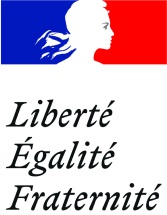January 2025 – Dive into this insightful interview with Lionel Cuillé, Director of the Center of Excellence at WashU, as he discusses the center's mission to enhance the visibility of French studies, foster interdisciplinary collaborations, and promote French culture in St. Louis, a city with deep Francophone roots.
What are your main responsibilities as director of the center of excellence of WashU?
My mission is primarily academic. My main goal is to contribute to the visibility of French studies on our campus by identifying French-speaking and Francophile scholars and creating synergies around shared areas of study. This was the case, for example, when I organized a conference on the concept of “laïcité” in collaboration with my partner from the WashU Law School. I also work closely with cultural actors in St. Louis such as the curator of the St. Louis Art Museum, Simon Kelly, who is one of the affiliate members of our center. Beyond traditional partners, I have created new collaborations with the Washington University School of Medicine and its MedFrench group, composed of French-speaking doctors and medical students, who attend our MEDFRAN lecture series along with our undergraduate students. My role is also to highlight the research of the academics who are associate members of the center. With my colleagues, we have defined three research areas for our center: the Corridor Creole Initiative (CCI), which aims to study the historical and cultural space between Quebec, New Orleans, and the Caribbean; Medical Humanities, which includes promoting Professional French for Health; and finally, translation.
Could you give an example of an event the center recently promoted?
This semester, the Center organized an interdisciplinary conference to mark the reopening of Notre-Dame de Paris. This event, which was fully booked, brought together scholars specializing in medieval literature, historians, and architects to highlight the cultural significance of this cathedral that has won the hearts of Americans. By organizing this conference, I was fulfilling my mission: to use WashU’s academic expertise to highlight a monument that is a strong link between France and the United States, with Americans being the first to contribute to the monument’s restoration fund. What ultimately contributed to the success of this event was its connection to the introductory architecture course (with over 80 students), as well as to my French class (Writing Intensive, Current Topics), in which my students were tasked with writing the speech of Emmanuel Macron for the reopening of Notre-Dame!
What is the center’s strategy for promoting the French-speaking world?
My strategy is to offer high-impact events that will convince our students of the added value of French for their studies. This was the case, for example, when I organized an event for the « Pantheonization » of Josephine Baker, inviting Tishaura Jones, the first African-American woman mayor of St. Louis, to give a speech tracing the exceptional journey of this native of our city – dancer, actress, and resistance fighter in service of France. Also, thanks to a grant from the embassy, I will invite French representatives from Doctors
Without Borders to WashU. It will be a great opportunity for our PreMed students, who are interested in humanitarian medicine!
I believe that the Centers of Excellence network should serve as a recruitment tool for engaging students in French studies: this is what I wanted to emphasize when I wrote the charter for the centers with Vincent Michelot. Of course, I enjoy organizing impactful events with my colleagues in the most diverse departments who want to promote the visibility of French studies at WashU. However, there can be no Franco-American cultural center without a strong French program, because it is our students who have chosen a major in French studies who are the primary promoters of French in St. Louis.
What challenges does the center face in its mission?
The health of the centers is closely tied to the health of the French department to which they are attached. At WashU, we are fortunate not to face the enrollment crisis that affects many colleges nationwide. Our center particularly benefits from the international institutional reputation of WashU and its financial support: all the cultural events I have organized have received backing from various schools (WashU Medical School, WashU Law School, Sam Fox School of Design), partner departments, our Center for the Humanities, and the Center for Literary Arts (CLA). WashU, as the city’s largest employer ahead of Boeing, positions our center well to promote French culture in St. Louis, a city founded by the French in 1764!
For more information about the French Connexions Center of Excellence, click here.



